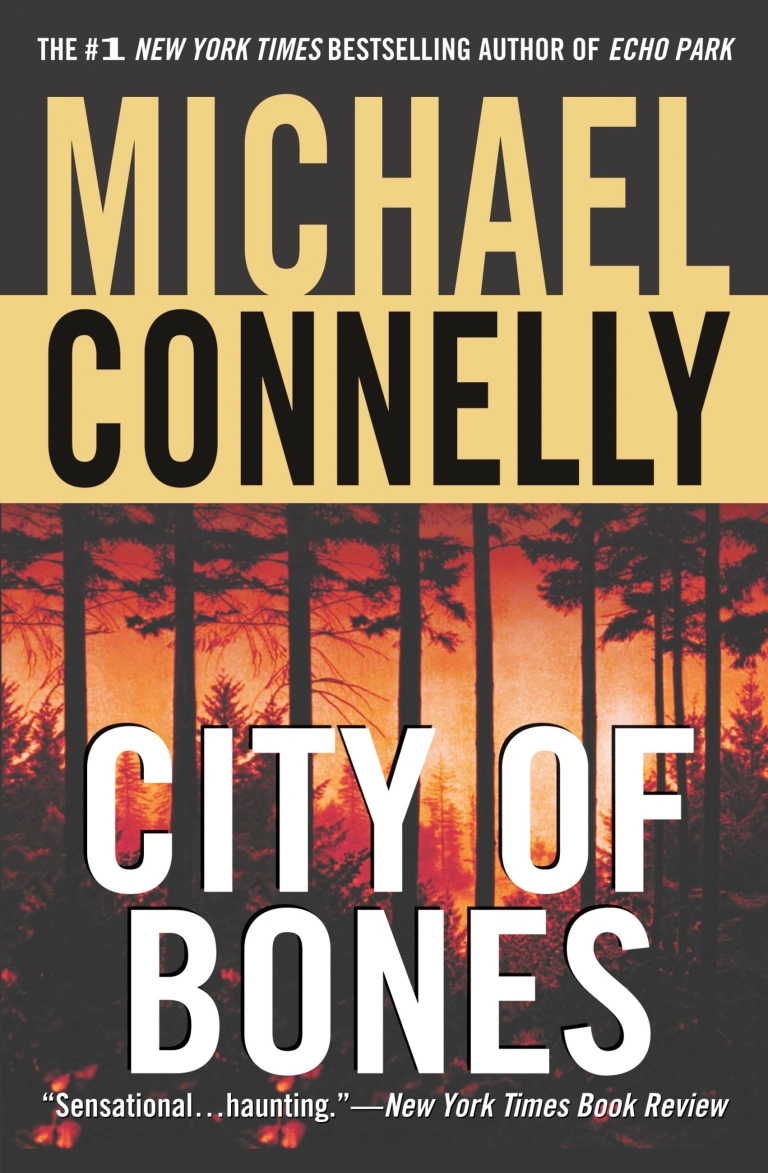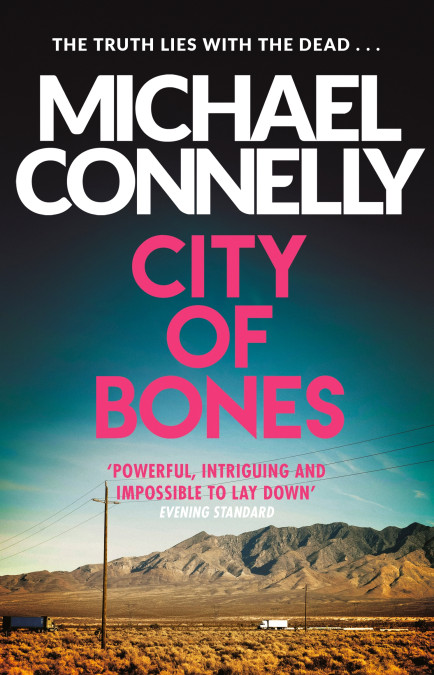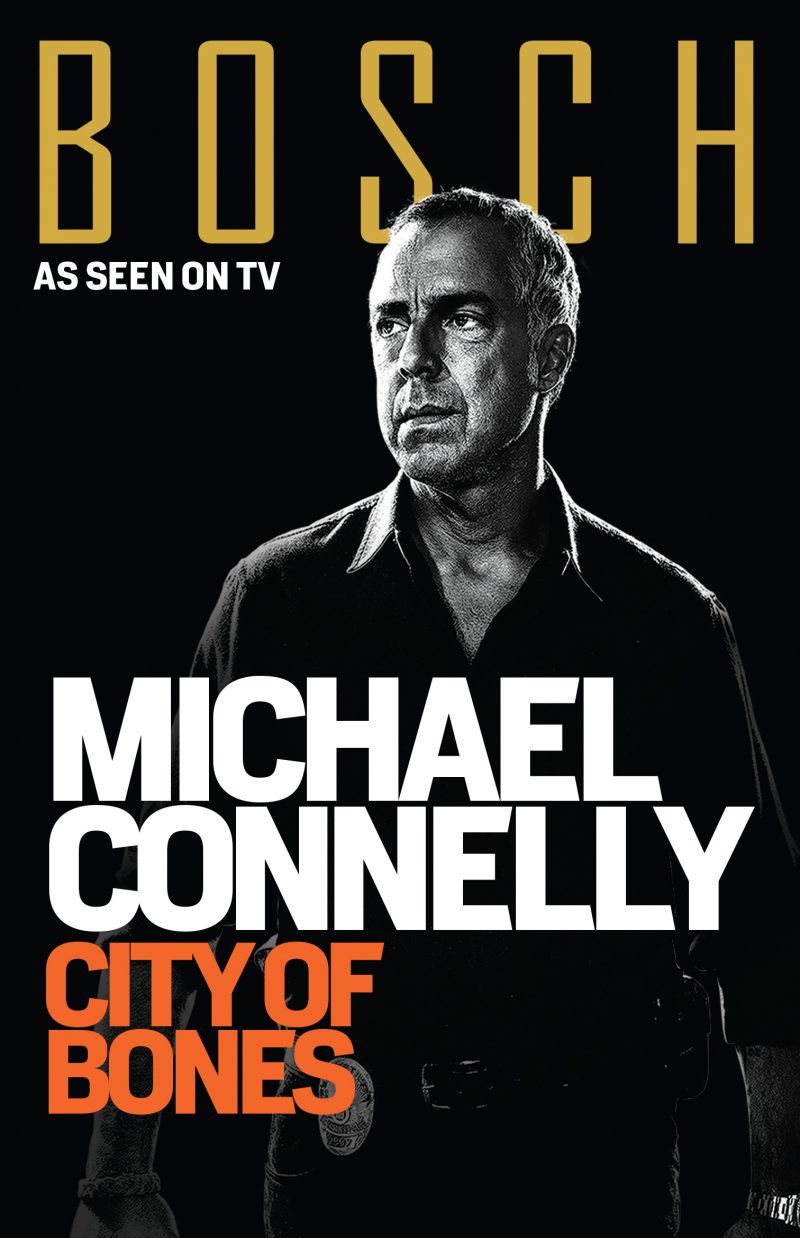Harry Bosch Interview
Michael Connelly “Interviews” Harry Bosch
The following conversation between Harry Bosch and Michael Connelly was recorded in Los Angeles at a cyber café called the Frontal Lobe on April 1, 2002. Bosch agreed to the recording on the condition that it would be presented here in its entirety. Because it is unedited it is strongly advised that this conversation not be read until AFTER one reads the accounting of Bosch’s last case contained in the book City Of Bones. Bosch’s comments here contain NUMEROUS SPOILERS that will be detrimental to the reading of the book.
SPOILER ALERT!
April 1, 2002
Harry Bosch: Okay, so I’m here. What do you want to know?
Michael Connelly: First of all, can you identify the music they’ve got playing on the sound system here?
HB: What is this, a test? I thought it was supposed to be a conversation.
MC: No, it’s not a test. It’s just that it sounds like your kind of —
HB: It’s Frank Morgan. Mood Indigo is the CD and this song is called “Lullaby.” Do I pass the test?
MC: Yes, thank you. So let’s start then. Let’s talk about the case you were most recently working on. The bones of a boy found on the hill in Laurel Canyon.
HB: What about it?
MC: Well, I got the sense when I read about it that there was sort of a pallor of futility settling over you as you worked it. I would assume that with cops that constantly see the underside of a city and its inhabitants — the abyss, if you will — that there is a real danger of being infected with a sense of what’s the use. You know, where it hits you that for every murder you solve there will just be another and then another and another and so on. What’s to stop somebody from saying what’s the use and giving up?
HB: I would not characterize what happened on that case as me giving up.
MC: Well, I did feel the cloak of futility upon you.
HB: Maybe that was you. Maybe it was coming down on you and you just read it in me.
MC: Maybe it was in relation to the events of September 11th. One of the ripple effects such a catastrophic tragedy has is that it makes everything small in comparison. Even solving the murder of a long forgotten boy.
HB: Or writing a crime novel.
MC: But we’re talking about you here.
HB: Look, I’ve always said that everybody counts or nobody counts. I choose the former over the latter. Everybody counts. That goes just as much for the boy on the hill as it does for every person that was in the World Trade Center or in the Pentagon or on those planes. I’ve never had a problem keeping my eyes on the prize. Not this case or any of the others before it.
MC: Let me try it from another angle. There is a difference between how a cop works on a case and how a case works on a cop. This case seemed to work on you more than most. Maybe it was the nature of the killing. Maybe it was something to do with your age and what you have seen and where you are at in your personal journey. But by the end of the case, it seemed to have gotten the best of you. You were clearly finished, in my opinion.
HB: But that is not the same as giving up. I haven’t given up.
MC: True, you did work the case to its conclusion but it seems that you also worked it to the conclusion of your own career. Is that a fair assessment then?
HB: To the extent it was the conclusion of my career with the LAPD, yes. But I’m not finished yet. I have not given up. Whether or not it worked on me more than I worked on it, I looked at that case as one in which my eyes were opened and I realized I didn’t need all of that anymore. You know, that the things and the institution I thought I needed might actually be what hold me back.
MC: So you are leaving the institution behind but not leaving behind what sort of has been your personal mission in life.
HB: Exactly. I used to think I could not have one without the other. I don’t think that way anymore.
MC: So what are you going to do, get a mask and a cape and sit on roof tops at night or something?
HB: Very funny. I thought this was supposed to be a serious conversation. If you want to have a bunch of laughs why don’t you go down the street to the Improv?
MC: Sorry, I’m not trying to be funny. It’s just that I’m trying to get a picture of your plans.
HB: There are no plans. It will just happen. When I walked out of that police station for the last time, I carried away enough files to keep me busy if I want to be kept busy.
MC: Are those files the cases that haunt you?
HB: You could say that. Anytime somebody gets away you are haunted. It’s the nature of the mission. You speak for the dead, man, because nobody else does. You let down the dead and you’ve got ghosts that haunt you.
MC: All right, so we have not heard the last of Harry Bosch.
HB: Hope not.
MC: Let me ask you this, have you applied to the state of California for a private investigators license?
HB: Yes, but that is just part of the routine. Every cop I know who put in the kind of time I put in applies to get the private ticket. Doesn’t mean anything will come of it. It just sort of helps with the separation — from insider to outsider.
MC: You always hit me as an outsider even when you were an insider.
HB: I probably was. The department, for me, was a means to an end. I always felt I was in it but not of it. There was something I wanted to do and I thought for a lot of years that being in the department was the only way to do it. Now I am looking at other means to the same end.
MC: Any other options besides getting a private ticket?
HB: A few. The DA’s office is starting a cold case squad. They are looking for people with experience, people who know how to close cases. I might send in my name and see what happens. I know some people over there and they have a measure of my skills.
MC: A measure of your temperament, too, I would hope.
HB: Like I said, they know me. But they’re only going to care about one thing; can this guy come in here and close cases for us. They’re not going to care whether I hang around the water cooler or not.
MC: Will they care if you bend the rules, stretch the lines?
HB: I think they will care about results. In this world results count the most.
MC: Tell me, would you ever consider leaving the City of Angels for a job or a woman or anything else?
HB: I don’t think so. This is my place. I don’t want to go anywhere else. I probably wouldn’t know what to do anywhere else.
MC: Tell me about that. What I mean is, can you verbalize your feelings for this city. What makes you stick here? What is the essence of this place for you?
HB: It’s probably the same with everybody else and wherever you go. It’s home, you know. I’ve seen a lot of things go down in this city. Good and bad but I would have to say mostly bad — it’s the nature of what I did for a living. But the thing about this place is that it is always so close to being something good. So I guess the essence I feel is hope. I hope — we all hope — for that better day and we know it is possible. The reality, of course, is that usually something goes wrong. Defeat is snatched from the hands of victory, or whatever that saying is.
MC: That is being cynical, isn’t it?
HB: Sure, but I’m a cop.
MC: Was.
HB: Right. Was.
MC: Julia Brasher.
HB: What about her?
MC: I’m still puzzled by her. What did you learn from her?
HB: Probably something I already knew but had kind of pushed to the back burner. And that’s that you can never know anybody. Everybody’s got a secret room that they go to. It’s a place nobody else can go. There are paintings on the walls but the outsider will never see them. Only the person whose room it is.
MC: Well, you only knew Julia Brasher a couple weeks. What about the people who have been together a long time. Don’t people — I’m talking about couples bonded by love and sex and family and so on — don’t they end up knowing everything about each other? Don’t they get inside each other’s room?
HB: Are you kidding? Those are the ones with the most secrets.
MC: You’re a cynical guy.
HB: Damn right. Keeps me alive. I see a ring on your finger. You’re a married guy. Children, too, I bet.
MC: So?
HB: You’ve got secrets. Lots of them. Secrets your wife and kids don’t know anything about.
MC: That may be true but we’re here to talk about you?
HB: Same difference.
MC: Well, if we’re going to talk about wives, what about Eleanor Wish? Where is she?
HB: At the moment I couldn’t tell you. She’s just out there somewhere.
MC: Will you ever see her again?
HB: I suppose I will. I hope so.
MC: Why? It seemed to end badly with you and her.
HB: Because she’s the one. No matter what happened at the end or along the way, I know she was the one true connection in my life. She’s the one who came closest to seeing the paintings in my secret room. I don’t think that will happen again. I’m a believer in the single bullet theory. You get one shot. I’m sure that I will be with other women — like Julia — but they won’t get inside the wire like Eleanor did.
MC: Inside the wire. That is a war phrase, isn’t it? It refers to the perimeter put up around a camp. If the enemy intrudes it is called getting inside the wire, right?
HB: Something like that. What about it?
MC: I don’t know. It just sort of seems like an unfortunate choice of words when describing relationships. Single bullets and getting inside the wire. Like maybe you look at it as a war and you are this armed encampment or something.
HB: You read too much into things. They’re just words.
MC: I make my living with words. I think they often mean more than what is actually said. Do you think you can ever be happy with a woman in a relationship?
HB: I’m never going to be a Honey-I’m-home type of guy, if that’s what you mean.
MC: Why?
HB: The nature of the beast. I’m not equipped to be that guy. Growing up, I didn’t see that. Then on the job, I saw even worse. I’m not into self-analysis so all I can tell you is that I can’t do that. And the women I am with usually find that out pretty quick. Julia Brasher never got the chance but she would have eventually found it out, too.
MC: The exception being Eleanor Wish?
HB: That’s right and do you know why? Because she wasn’t looking for that in me. She was just looking at me. That made me lift up the wire and she got in.
MC: So then what happened?
HB: Look, I’m done talking about it. We’re way off course here. This was supposed to be about my work on the department, not my screwed up marriage.
MC: Okay, then back to that. How many homicides did you work in this city?
HB: I don’t know. Hundreds.
MC: Is it a better place now for what you’ve done?
HB: I hope so. I think so. It’s an equation, you know. Evil in, evil out. My job was the second part, taking evil out. Getting rid of it. If you look at it on those terms I think I did pretty well by this place. There is less evil out there. At the end of the day, that is what you cling to in a job like that.
MC: So now that you are on the outside of all of that, what do you cling to?
HB: I guess I cling to hope for that better day we were talking about before.
MC: Your mentioning of the equation of evil in and evil out is interesting. What are your thoughts on evil? Where do you stand on the age old debate about whether it simply exists in the world or it is something that is fostered and cultivated. Grown, if you will, inside a person, just the same as maybe love and joy are.
HB: I guess it’s an age old question because there is no sure answer. At times I think I’ve felt both ways about it. Certainly, I have been in contact with people who are flat out evil. And with some of them I could look back across their lives and see where different gateways opened that led to other gateways and eventually a path of evil intent was arrived at. But for every person like that there is also the case where you see the evil behind their eyes and in their deeds and you have no earthly idea where it came from and how it got there. It’s a mystery that can never be solved. It’s just part of their nature to be evil. It’s like evil just existed out there and somehow they walked into it. Like somebody hitting a cobweb walking through an attic. But I have to tell you I don’t spend a lot of time contemplating that sort of question. For me, I know it is out there, no matter what its source. And I don’t worry about where it came from. Because to think about it might be a dangerous distraction. That might get me killed. My bottom line take on the human existence is that each one of us comes with an unlimited capacity to love and hate, to be afraid, to be lonely, so on and so on. Most often you get a good blend of all of that in everybody’s milkshake. But why somebody’s cup gets filled up with only hatred and evil intent might make for a good intellectual question and discussion, but ultimately it doesn’t matter. What matters is going out there and taking that evil out of the world.
MC: So in a way you’re like a dog catcher. If a dog’s loose in the neighborhood it doesn’t really matter why it’s loose. It has to go into the back of the truck before somebody gets bitten.
HB: Especially kids. You don’t want them to get bitten by that dog.
MC: Right. That evil dog.
HB: Yeah, that’s good. I like that. Just call me a dog catcher. I won’t complain about that.
MC: Okay.
HB: Anything else?
MC: No, I think that covers it.
HB: Okay then. I’ll see you around.
With that Bosch stood up and left the Frontal Lobe.
Read a second interview with Harry Bosch done in 2005.


